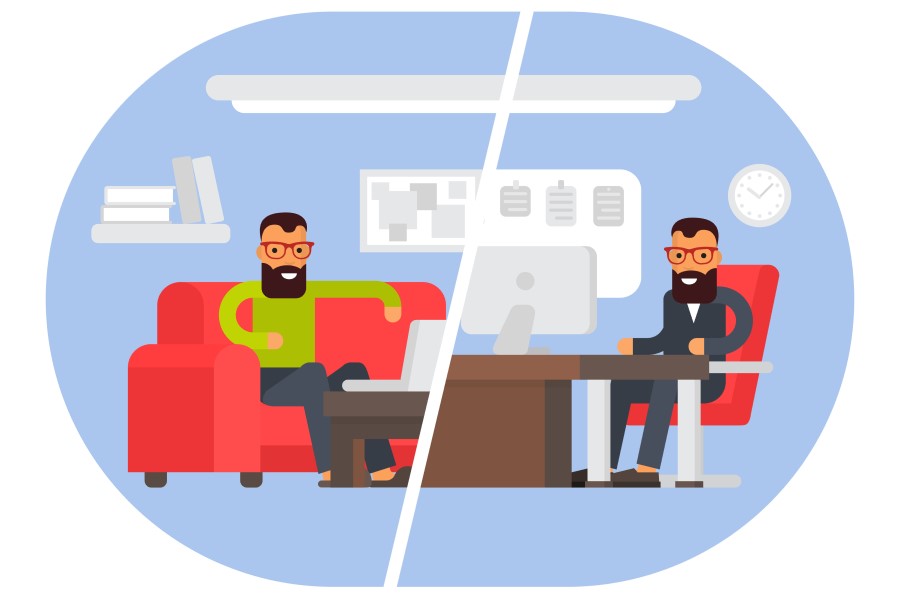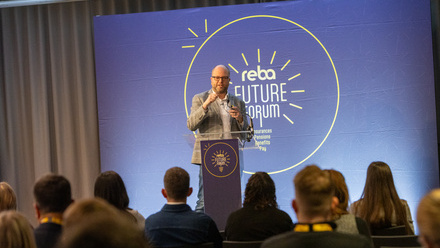The future of work: should employees be given a choice of where to work post-COVID-19?

On top of this, a survey of 447 workers carried out in June by Adzooma, revealed over 90% of employees believe they’re able to perform their job as normal from the comfort of their own home.
If employees are feeling more productive by being at home, should businesses be giving their staff the option of working from home in the long-term?
Addressing employee concerns
With lockdown measures easing, businesses may be considering how to return to the workplace.
However, it’s the company’s responsibility to listen to staff and act on their concerns. That is the view of Stuart Nottingham, director at Sun Rehabilitation, a partner of BHSF.
“In simple terms, employers should be seeking to understand the concerns and how reasonably those issues can be addressed in handling the return to the workplace. This could include, where possible, changing start and finish times, phase the return in stages or delay it altogether.
“Planning ahead and communication with employees is key to a smooth transition back to work and employers who successfully handle this will be those who have maintained employee trust.”
As well as employees requesting flexible working, Nottingham believes staff could raise other issues about returning to work.
“Some may have concerns over their safety at work, especially if they or a member of their household has a pre-existing medical condition that could put them or their family member at risk if they catch COVID-19.
“A survey has found three in five people in the UK wouldn’t feel comfortable using public transport after the COVID-19 lockdown eases, unless social distancing measures have been installed.
“If staff get to work by using public transport, I’d advise employers to continue to let them work from home until they feel confident in returning to the office and it’s safe to do so.”
Offering employees the choice
The COVID-19 pandemic may impact how businesses operate in the long-term and Nottingham believes if homeworking is here to stay then it could ultimately be advantageous to employers and employees.
“If employees work from home, an employer could benefit from reduced demands (costs) on the premises and reduced commuting emissions. Also if employees are happy to work from home, then there’s potential for staff retention which can only be a positive.
“I believe working from home could be the new normal in the next few years as technology is now sophisticated enough to cope with homeworking.
“Video conferencing technology has boomed as a result of the outbreak and we’ve already seen Zoom’s global daily users go up from 10 million in December 2019 to 300 million in April 2020.
“What the coronavirus situation may have done is accelerate the inevitable for businesses by demolishing the cultural barrier of ‘we do not do business this way’.”
However, Nottingham adds businesses should give employees the choice to either work from home or go into the office to suit their individual needs.
“It’s important offices do stay open as we are social animals and do need to meet to develop working bonds, ensure we’re all moving in the same direction and negate the mental health issues of prolonged homeworking.
“Nevertheless, if employees are happy to continue working from home, businesses will need to adapt.
“Companies need to ensure their employees have a workspace that fits into their home and isn’t going to cause musculoskeletal issues through long- term exposure to working in poor postures. It’s all about investing in employees and making sure their needs are met.”
Nottingham also believes hot desking could be a money saver for companies in an already challenging economic climate.
“Think of the saving to a business if they could half their office space. With creative thinking, good equipment and processes, I believe this is possible.”
This article is provided by BHSF.
Supplied by REBA Associate Member, BHSF
BHSF is a market-leading health and wellbeing provider.







